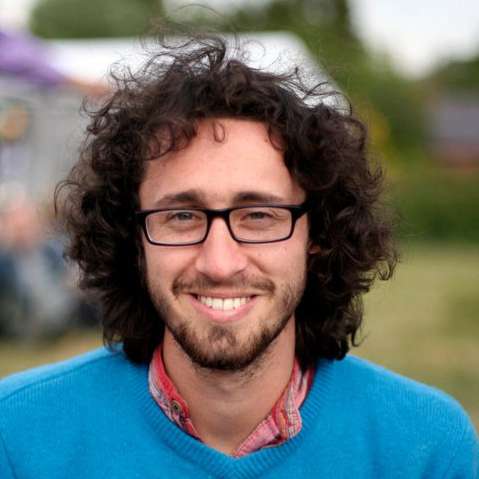Although it was probably arranged via a series of emails between managers, the audience at Prom 41 could have been forgiven for thinking that this was a match made in heaven. Grizzly Russian maestro Valery Gergiev brought music composed by his compatriots to the first of this year’s two London Symphony Orchestra Proms, with a programme of works by Borodin, Glazunov, Sofia Gubaidulina and Mussorgsky. He also brought with him one of the most impressive young Russian pianists to burst on the scene in recent years, Daniil Trifonov: another relationship seemingly formed by divine providence. However they were brought together, these performers produced a Prom that must rate amongst the best of the season.
Borodin’s Symphony no. 2 in B minor is a work as satisfyingly structured as the aldehydes that Borodin spent most of his life poring over. A concise work not short on drama, invention and variation, this symphony says precisely what one wants a symphony to say, in under half an hour. The first movement is essentially the alternation of two contrasting motifs, which are stated, fragmented or developed to form an intense movement full of menace but shot through with shards of lyricism. The LSO’s strings made a deep, earthy sound, the brass were powerful and grave, and the winds provided that levity which keeps the grim foreboding of the opening melodic cell in check. A light, darting scherzo follows, transforming into a lilting, lyrical trio that swells to a luscious full orchestral sound after beginning daintily in the winds and triangle. The gorgeous Andante starts dreamily with a gentle harp flourish and a hauntingly beautiful clarinet melody, taken up by in a heart-melting horn solo. The music becomes brooding as brass and strings take over, rises to a climax before overflowing into a passionate rendition of the horn melody, and subsiding into the tenderness of the opening texture once more. The Finale erupts like an excited rodeo (or whatever the Russian equivalent is), and although the party is broken up by threatening growling form unison lower brass, the festivities soon continue until the work’s thrilling conclusion.
This fantastic start was followed by 22-year-old Trifonov’s arrival on stage for Glazunov’s Piano Concerto no. 2 in B major. Written in the tumultuous year of 1917, this is an extraordinary work in its total lack of engagement with the momentous events of the time; Glazunov’s warm, fuzzy ultra-Romanticism seems to have been incubated in a cocoon of former glories. The musical luxuriousness of Glazunov’s syrupy writing would have left me feeling a little over-indulged and peaky had it not been for Trifonov’s unbelievably feather-light touch; his tender caressing of the keys was so perfectly matched to the musical content as to convince any listener that this is music worth over-indulging in. Great performances can make music sound better than it actually is, and this certainly was the case here: a fact recognised and acknowledged by all present (including conductor and orchestra). Trifinov returned to the stage for something completely different: the “Infernal Dance” from Stravinsky’s Firebird, fiendishly transcribed for piano by Guido Agosti. Fireworks, more like!
Sofia Gubaidulina is amongst the most remarkable composers of the late Soviet era. The Rider on the White Horse was originally part of her oratorio St John Easter, and the title refers to the first of the Four Horsemen of the Apocalypse from the Book of Revelation. Apocalyptic the music certainly was, with its shocking, dissonant organ outbursts, its extended section for three enormous drums, and its frantic, scurrying sul ponte string sections. But there is redemption, too, in the apocalypse, in the world’s reconciliation with God: triumphant fanfares sound, bells ring out, and the music disintegrates into the ether with bowed percussion creating a spine-chilling, high-pitched, almost electroacoustic soundworld. This astonishing music was spectacularly performed, the percussionists deserving a particularly hearty cheer for their herculean efforts.
Ravel’s colourful orchestration of Mussorgsky’s Pictures at an Exhibition provided a brilliant end with a continental twist to this all-Russian extravaganza. Every time I hear Ravel’s orchestral music I’m astounded at the brilliance of his orchestration, and this was again the case here; Mussorgsky’s musical imagery is wonderfully visually evocative as it is, but Ravel adds another dimension to the pictures, bringing out not only the painting’s subjects but the landscapes in which they are set, the personalities, the histories. He adds a vividness, a profundity to these already remarkable musical scenes. Gergiev, too, contributed: conducting scoreless, he brought out every detail of Mussorgsky’s music, every glimmer and glint of colour from Ravel’s. And the orchestra obliged, filling they’re playing with light and darkness, humour and gravity, exultation and pathos, youth and age: daubing the Royal Albert Hall and all those in it with the finest musical art.
LSO, Gergiev, Trifonov, Russia, the Proms – praise be to whosoever made it happen!


